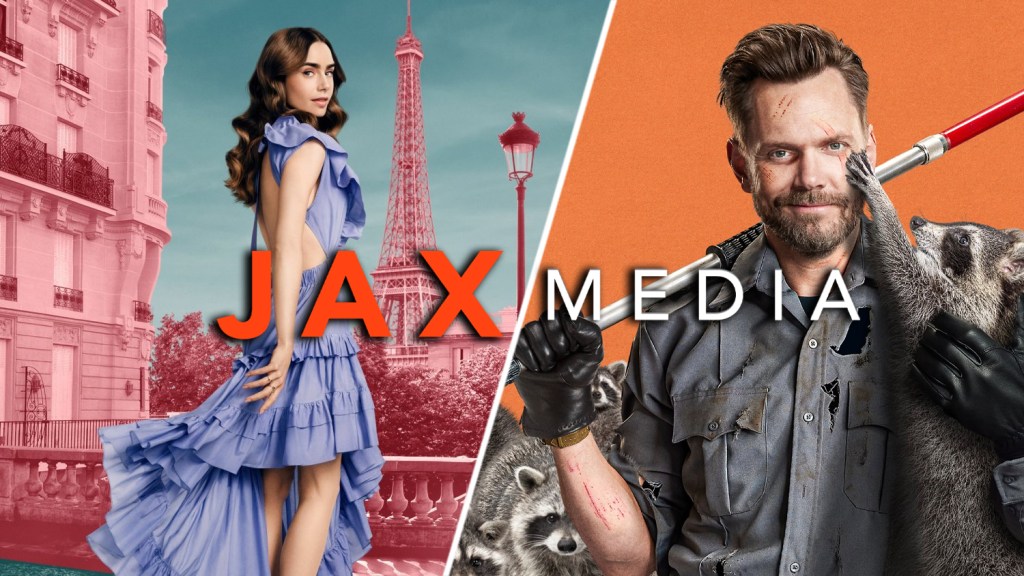Welcome Back to Production.ink, (lucky) Issue #13. In this issue, we look at the process of taking literary content and making TV and Films from it.
You may have noticed that in the last few years there have been a growing number of television series, documentaries, and movies that are adaptations of popular books. It’s true, of course, that book to screen adaptations have always found their way to the top of the box office charts, or become massive hits on streaming services. But in recent years, many more of these projects are being made, and many more of them are proving successful than ever before.
The Advent of Streaming is Good for Book to Screen Adaptations.
This can most likely be credited to the growth of the streaming service space and the shrinking of the traditional television and movie industry– paving the way for new and less traditional formats like limited series, docu-series, and “specials”. These new formats make the transition from book to screen more feasible, because while certain kinds of books previously would not have succeeded as a traditional movie or television drama, there may now be a place for them. Even though the streamers are beginning to pull back on original production in the U.S., there is still a steady pipeline of book to screen deals being made here and outside the country. With so many new concepts of what film and television can do, book properties that may have been overlooked in the film and TV industries previously are being brought to the screen.
But what makes a book right for film or TV, and how do publishers, agents, and authors market their books to the industry, a world in which they do not usually operate in? And is the potential for adaptation driving or influencing publishers' decisions about the books they choose to acquire and publish? On the flip side, what are production companies looking for in the books they decide to buy screen rights for? And how do these negotiations really work?
When a book is bought by a publisher, they almost always acquire all of the rights from the author – this includes audio rights, foreign language rights, and of course, TV and film rights. One of the main ways that a publisher (and by extension, author) make back the payment for the book’s advance is through selling these rights. While it isn’t the most popular strategy to make adaptation deals, some business is being done at the world's major book fairs– namely The Frankfurt Book Fair, and the Bologna Book Fair for children’s books. While literary agents and publishers often do not work directly in the TV and film world, they work with co-agents to sell the rights to their books to producers. Producers would be well served to attend these fairs to get early looks at new projects.
Producers and Publishers Seek the Same Wide Audiences.
Generally, producers have the same goal as publishers– to get their project in front of as many people as possible. So, books that have the potential for sequels, that require less world-building and budget, or which fit into a certain hot genre, are highly attractive to co-agents in the TV and film industries when scouting new book-to-screen opportunities.
For example, Netflix has been very successful in the past when creating limited series and movies in the Rom-Com and Christmas genres, and many times, these films were adaptations of popular romance or holiday books. Authors and books that follow the same pattern, or garner the same die-hard fan base as popular movies like “Bridget Jones’ Diary” or “Crazy Rich Asians”, would be highly attractive contenders for the book-to-screen market if they managed to garner relative success as books. In recent years, we have seen popular young-adult romance movies and series like “To All The Boys I’ve Loved Before” and “The Summer I Turned Pretty” become massive hits. Similar trends followed big successes in other book-to-screen genres like horror, science fiction (following the success of “The Martian”), or female-led thrillers like Gillian Flynn’s “Gone Girl” and “Sharp Objects”.
Producers are looking for the same key qualities that publishers are: a strong and compelling story, a unique premise or hook, well developed characters, genre appeal, target audience, and cultural relevance. This, coupled with more technical and/or promotional advantages, like commercial success in the book world, author platform, visual potential, and the opportunity for series and spin-offs, make for a perfect book-to-screen deal.
Shopping Agreements Are Becoming More Prevalent.
Another interesting development in the book-to-screen industry is the growth of “shopping agreements” where the parties agree to a short term “shopping” period of exclusive rights to the content. These deals usually come at no upfront fee, but only last six months. We are seeing more and more of this post-pandemic. This short amount of time puts pressure on the production company to either make the screen project work, or let the property go. It is attractive to the production company because it requires little to no upfront money, but the time limit serves the interests of the publisher and author.
It is clear that book-to-screen adaptations are not going away– in fact they continue to thrive in the post-pandemic, post-strike, post downturn market. In our next issue, we will dissect a book to screen deal and help you understand how that particular sausage is made.





Bob Ramos has been named VP/executive producer at New York-based Rhinoceros Editorial, a part of MVG.
Jax Media Head of TV Dave Binegar, who joined a year ago, and UK Creative Director Katie Gahamire, who came on board in April, to depart.
French animation studio Passion Paris has appointed Caroline Audebert as Managing Director.
A staff reduction came at Fifth Season mostly in Business Affairs as the indie studio shut down its in-house BA team. Also leaving are Janice Lee, VP, Film Development and Production, as well as a VP of physical production.
Thanks for reading. See you soon. - The Production.ink team
Physical Address: 367 St. Marks Avenue, Suite 765, Brooklyn, NY 11238





